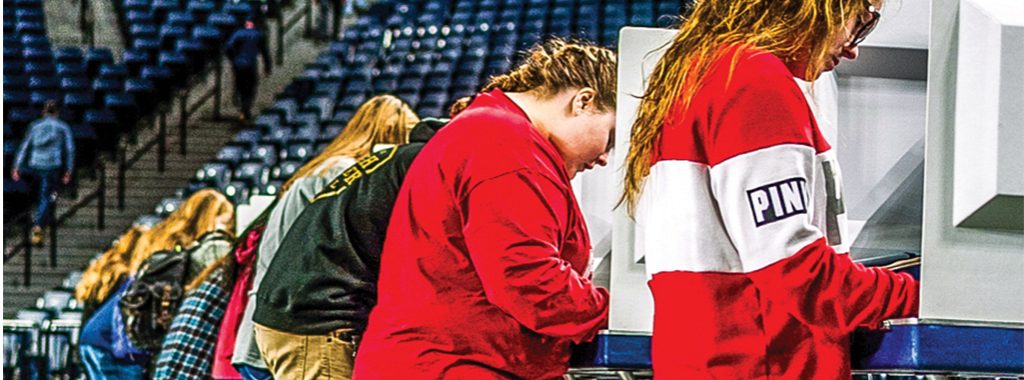Virginia is going old-school this election season by replacing electronic voter machines with paper ballots. In anticipation of the closely-watched gubernatorial election, Virginia’s state Board of Elections voted Sept. 8 to decertify Direct Recording Electronic voting machines, according to the American Free Press. By reverting to voting machines that leave a paper trail, Virginia hopes to stop hackers from breaching the voting systems and possibly manipulating results.
This past summer, a display at an annual hacker’s conference, DEF CON, proved how easily the electronic voter machines used in parts of Virginia could be compromised, The Washington Post said. The ease with which multiple technological enthusiasts hacked into the voter machines is sobering, and the realization that the weaknesses in these programs have largely been overlooked is also concerning. With so much uncertainty in our country, the accuracy of elections should be a top priority, but it only became one after a public showing of the DRE weaknesses.
The federal government also recently released a statement confirming that at least 21 states were targeted by hackers during the presidential election of 2016, but did not confirm whether the hackers were Russian. With threats on multiple sides, the security of these systems has been severely compromised. The American Free Press has warned of the vulnerabilities of DRE voting machines before, but the recent threat of possible Russian hackers and the DEF CON demonstrations have heightened peoples’ fears for the security of this basic American right, especially in such a close election.
Paper ballots effectively will help keep a physical record of election results, but the results themselves may not be what hackers are after. According to a National Public Radio article, hackers during the election attempted to breach a voter registration site, not the voting machines. While increased security measures for voting are necessary, the precautions that Virginia is implementing may be too little, too late.
For voters, changes to the voting process are minimal. Voters will simply mark their choices on a paper ballot, which will be inserted into an electronic scanner – one that is not connected to the internet. While the results are sent electronically, the paper ballots are kept as physical records in case a recount is necessary.
We are used to an electronic world, where almost anything can be accessed momentarily. However, most people do not realize how easily information stored on the internet can be retrieved or even altered.
The rapid advance of technology in the 21st century has made it nearly impossible to enforce adequate security measures. Inaccuracies in voter results existed long before computers were invented, and reverting to paper ballots will by no means remove all security threats. However, using paper ballots is a preventative measure that could prevent election tampering.
If the changes implemented this election season go smoothly in Virginia, the same measures could be implemented in other states. Virginia’s success – or failure – to protect the accuracy of election results will inevitably influence future elections. Hacking is a real concern for voter results, and, though reverting to paper ballots might be a slight inconvenience, it is worth a try.
